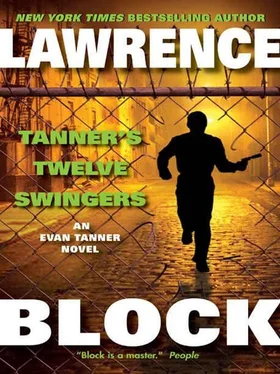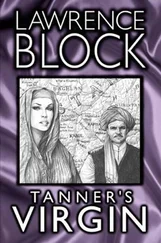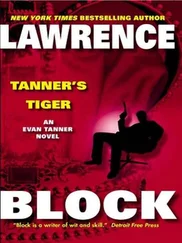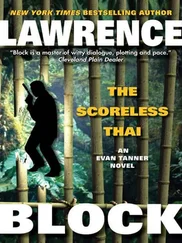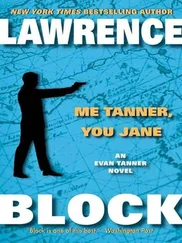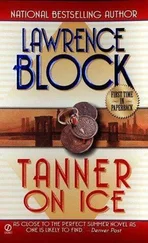I mused over this, and it must have shown in my face because Eva asked me what I was thinking about. “Only that you are very lovely,” I said, at which she blushed furiously and found something to do in another room.
Butec emerged, dressed and fresh-looking, not long after. While Eva fed him I returned to my room and scribbled a brief note in Hungarian: In the unlikely event that our love bears fruit, I wrote, I should like to know of it. You may always reach me through Ferenc Mihalyi. I added his Budapest address and left the note where she would certainly find it.
By noon we were on our way to Debrecen.
Sandor Kodaly had the body of a wrestler and the face of a medieval philosopher, with long, flowing hair, deep-set eyes, and finely chiseled features. He was in his early fifties, a widower with three unmarried sons. He and his sons ran a sizable farm outside Debrecen and made it prosper in spite of the frequent annoyance of five-year plans and new economic policies. I had never met him before, yet everything about him and his household was instantly familiar, an extraordinary incidence of déjà vu. It took me a few minutes to figure it out, and then I realized what it was. He and his sons and his farm were a Central European version of the Cartwright family, the Bonanza television program translated into Hungarian.
“So you are Evan Tanner,” he said. “And your companion is-”
“A man with temporary amnesia,” I said. “He has forgotten his name, and so, for that matter, have I.”
“Ah.” Kodaly nodded wisely. “That is sensible enough. There are times when men do well to be nameless. No man can reveal what he does not know, is it not so? And I cannot easily betray your companion without knowing who he is.”
“I do not fear betrayal at your hands.”
“Why not?”
“Because I trust you.”
“Oh? That may be foolish. I, on the other hand, am not that much of a fool. I do not trust you.”
Milan, on my right, remained heroically calm. So did I, though perhaps less heroically. There was nothing I could think of to say, so I waited for Kodaly to explain.
“What you require,” he said, “is simple enough. Entry to Czechoslovakia across the eastern frontier. No problem at all. I have business and personal interests that necessitate my crossing that particular border at will. Thus it is well within my power to assist you. The question is” – he paused dramatically – “whether it is in my interest. ”
“How do you mean?”
He got to his feet. “There are some points I must be certain of. You say that you are Evan Tanner, but Evan Tanner I know only through correspondence. From what I know through this correspondence, Evan Tanner is on the side of the angels. But I would prefer a bit more assurance – that you are truly you and that you are a man I would wish to help. Who in my country knows you? Who has met you face to face and would be able to identify you? Who, that is, who would also be a man I know and can rely upon?”
“There is a young man in Budapest named Ferenc Mihalyi. He knows me. As a matter of fact, he helped me across the southern border once.”
“Is that so?” He turned to the doorway. “Erno!” His youngest son, as tall as his father but slim as a reed, stepped quickly into the room. “You know Ferenc Mihalyi in Budapest, do you not? Study this man here, the younger one. Fix his face in your mind. Then go to Budapest and ask Mihalyi if this man is Evan Tanner and what he knows of Evan Tanner.”
Erno fixed clear blue eyes on me. I had the feeling that I was having my picture taken, that after ten seconds he would open his mouth to dispense a perfect Polaroid photograph of me. I, in turn, studied him, while Milan Bulec fidgeted quietly at my side.
“You have a phrase or two that might help identify you to Mihalyi?”
I thought for a moment. “Yes,” I said. “You might tell him that the man who was not my uncle is presently burning in Hell.”
“He will understand what this means?”
“Yes, and he’ll be glad to know it.” The last time I had seen Ferenc, he had helped me smuggle a Slovak Nazi to safety, a task he had not at all relished. He would be pleased to know that my nonuncle had joined his ancestors.
“Repeat, please.”
I did.
“Erno, repeat what this man has said and fix it in your memory.”
Erno got the message right, word for word, and asked his father if that would be all. It would, Kodaly said, and he should now drive to Budapest and return as speedily as possible.
Erno left us. Milan asked me, in Slovenian, how long it would be before we could get away from these crazy people. I told him I had no idea. Could I speed the process? I told him I doubted it.
“Tanner? While Erno goes to Budapest, you and your companion are my guests. In a sense you are my prisoners as well. My sons and I are armed, you see. It would be unwise of you to attempt to leave this house.”
“I had no such intention.”
“Very good. Meanwhile, there is food, there is drink, there are beds if you are tired. Books if you wish to read. Do you play chess? Or your friend?”
I play but not very well. Milan said that he played, and Kodaly asked if he would care to have a game. I watched with savage delight while Milan beat him six games straight.
Erno Kodaly had a fast car that he evidently enjoyed driving at an excessive rate of speed. He was back in time for dinner, he had seen Ferenc, and all was well.
“This man is definitely Evan Tanner,” he reported to his father, “and Evan Tanner is definitely to be trusted and assisted.”
“I thought as much,” Kodaly said. He turned to me. “Of course you will not hold against me the fact that I am by nature a cautious man.”
“Certainly not.”
“Then let us have dinner, and in an hour’s time you will be in Czechoslovakia.”
“Papa, there’s more,” Erno approached me. “Ferenc introduced me to another man who said that he knew you, that you had met. His name is Lajos.” I remembered a tall man with a broad forehead and a neatly trimmed gray moustache, an official in the Ministry of Transportation and Communication. “Lajos told me to give you this,” he added, handing me a thick manila folder. “He said that you might know what it is and what to do with it.”
I took the folder, mystified. I opened it. It was crammed full of a variety of official-looking documents. I leafed through them. They were all in Chinese.
“These are Chinese,” I said cleverly.
“That is what Lajos suspected.”
“Well, score one for Lajos. What are they?”
“He does not know.”
“Where did he get them? And when?”
“He did not say. He thought perhaps you could read them. He thought perhaps they might be important.”
“They might be very important,” I said. “Or they might be old laundry tickets.”
“Pardon me?”
“Nothing.” I can speak enough Chinese to know when I’m being insulted by a waiter or a laundryman but not much more than that. And I’ve never taken the time to learn to read it. I’ve always had the feeling that no one can really read Chinese, not even the Chinese people themselves. I waded through this miasma of documents and wondered just how Lajos had acquired this particular albatross and why he had felt compelled to drape it around my particular neck.
I wanted to chuck the whole mess into the fireplace, but that wouldn’t do. It might be important. Things do tend to happen for a reason, and evidently one of my hitherto unsuspected roles in the game of life was to carry this little bundle of chicken tracks from Point A to Point B.
And I had wanted to travel light…
“Can you read it, Mr. Tanner?”
Читать дальше
